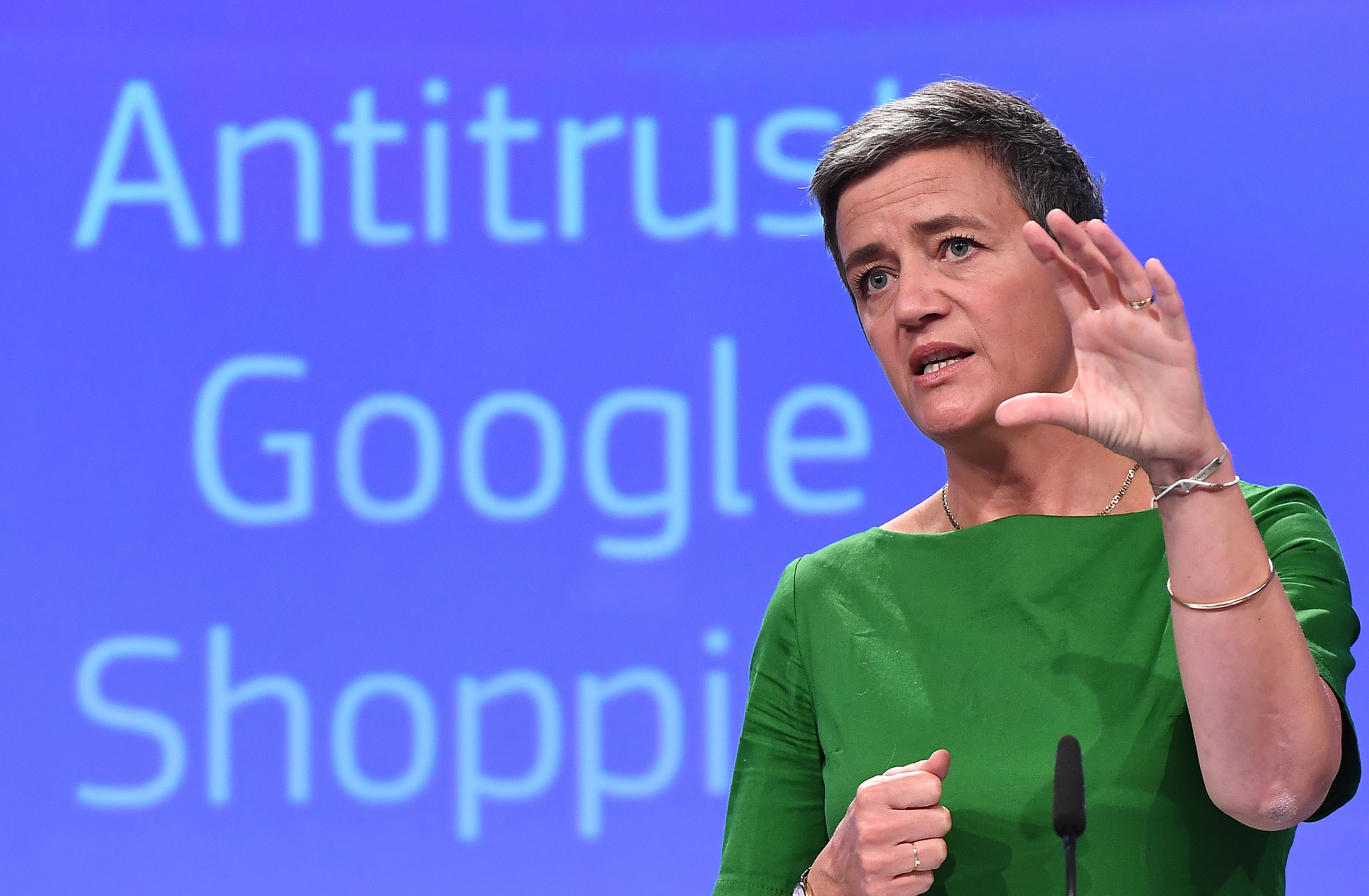Magrethe Vestager, the top antitrust regulator of Europe, this week defended investigations of her agency for other tech majors in the U.S. including Google, arguing that leading firms have a “particular responsibility” to prevent abusing their power in the market.
“If you have goods that users like and they keep coming, you can keep developing,” Vestager informed a forum in Washington at the American Enterprise Institute. But she claimed that when firms turn out to be overpoweringly dominant, then you get a particular responsibility since it is quite clear that rivalry suffers if you have power over 90% of the market.” The EU Competition Commissioner claimed that this indicates a “duty not to use your muscle wrongly.”
The comments from Vestager follow a move by authorities of EU in June to smack Google with a record fine of 2.4 Billion Euro (almost over $2.7 Billion) for unlawfully supporting in search results its shopping service. A year ago, Vestager surprised the world with a rule that Apple, the iPhone manufacturer, must repay 13 Billion Euros (almost $14 Billion) in Ireland in back taxes. Vestager claimed that her deeds were not targeted at punishing victorious firms.
“I have never had the run of thinking that we are hindering major firms,” she claimed. “We are punishing unlawful deeds.” Vestager claimed that maintaining rivalry is significant for users even when the goods delivered by social networks or search engines are free. “There is more to rivalry than keeping costs near to the ground,” she claimed.
“Even when an item appears to be free, such as a social network or a search engine, rivalry still assists to get users an improved deal.” She disputed that rivalry can allow users to find improved deals on privacy, and might give confidence to firms for innovation. Vestager claimed that Google failed in its responsibility to preserve a level playing field by marketing its own services and goods ahead of those of competitors, some of whom lost almost 90% of their users.
“Big firms also have to face rivalry to encounter the jeopardy of failure,” she claimed. “And that would not take place if we permit them to utilize their muscle to stop anyone having the opportunity to battle.”
On a related note, Pierre Moscovici, the European economy commissioner, claimed in Washington that he is open to all choices on a tax reform that might allow the EU to get more tax incomes from tech giants in Silicon Valley.
